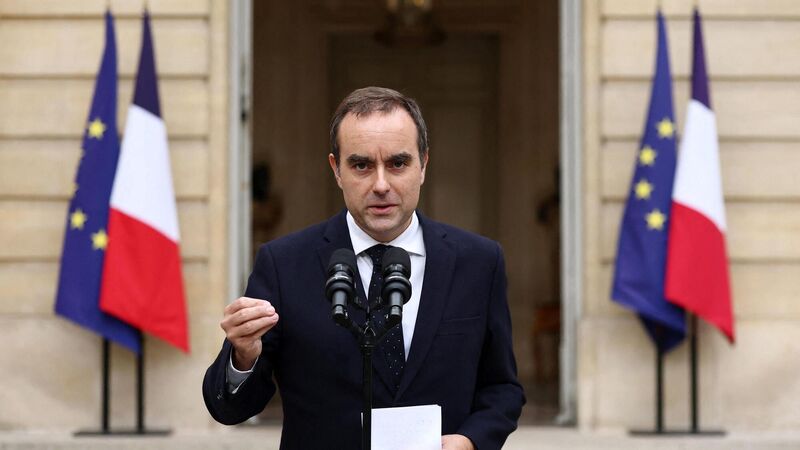French markets fall on resignation of prime minister Sebastien Lecornu

French outgoing Prime Minister Sebastien Lecornu, who resigned just a day after naming his government, delivers his statement at the Hotel Matignon in Paris on Monday. Picture: Stephane Mahe/Pool via AP
French markets tumbled after the resignation of prime minister Sebastien Lecornu on Monday threw the country into another political crisis, raising the prospect of snap elections to break the deadlock.
French bonds fell, with 10-year yields jumping as much as 11 basis points to 3.61%. That left the premium that investors are demanding to hold French debt over Germany at the highest level this year. The CAC 40 Index lost 1.5% as banks took the biggest hit. The euro weakened 0.7% against the dollar.











